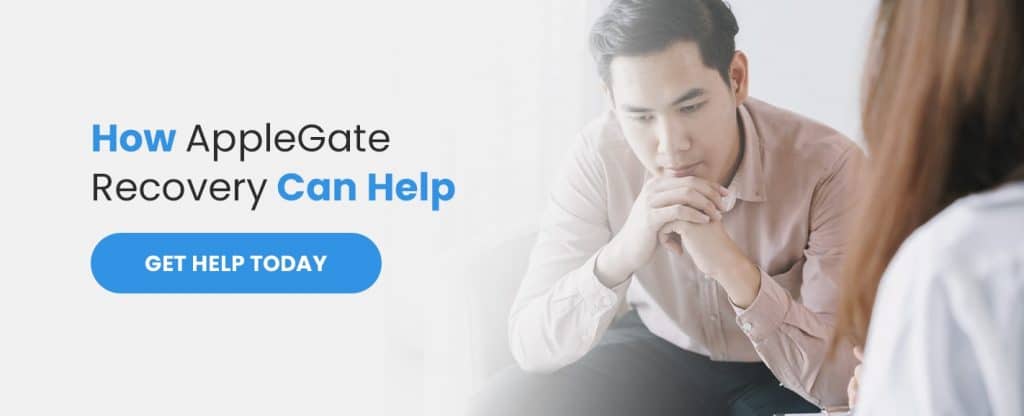
Opioids can affect the way food nourishes your body. The changes that occur once you stop taking these drugs are considered part of the healing process. In this blog, we will address why you might gain weight if you quit taking opioids and healthy ways to address the changes.
When addicted to opioids, everything else in the world comes second. The desire to meet that insatiable demand to use opioids and ease withdrawal symptoms can overshadow relationships, work, health and even your appetite. Many people do gain weight when they quit taking opioids — but this is not a bad thing. As your body recovers from years of abuse, it’s normal for your weight to fluctuate.
In this post, we’ll discuss some of the reasons you may be gaining weight while in treatment. We’ll also explore healthy ways to address weight changes as you move forward in your recovery journey.
Opioid Withdrawal and Weight Changes
Undergoing unassisted withdrawal from opioids can significantly affect your appetite. The intense nausea, vomiting and anxiety can make it impossible to eat or even hold down liquids. Sometimes, withdrawal symptoms can last for upwards of five days or more for some, potentially leading to dangerous dehydration and malnutrition.
Weight loss during opioid withdrawal is often temporary but can lead to medical issues. Addiction specialists don’t recommend quitting opioids by detoxing alone, as there are far more comfortable methods using medication that are gentler on the body.
Why Quitting Opioids Can Cause Weight Gain
Opioids warp the reward center of your brain by interfering with normal receptor function. As addiction takes hold and dependence grows, you will feel an unnatural need for that substance. Addiction to opioids impacts eating habits in several ways:
- Irregular eating patterns: At the height of addiction, everything else pales in comparison, including food. Compulsive cravings lead to more drug-seeking behavior while neglecting proper nutrition and regular eating.
- Uncomfortable side effects: Long-term opioid use can cause a variety of harmful side effects, including nausea, vomiting and constipation. These side effects can decrease your appetite, slow digestion and lead to extreme weight loss.
- Food insecurity: Many with opioid use disorder prioritize funding their drug of choice over buying groceries or regular meals. This means that they often become opportunistic eaters, not knowing where their next meal will come from. In recovery, this could lead to binge-eating behaviors once access to food has improved.
- Glycemic dysregulation: Opioid addiction can cause hyperglycemia, which is associated with a preference for sugary and rich foods. Eating processed foods that have high carbohydrate content can quickly cause weight gain.
When you quit using opioids, your body begins to regulate and heal. You may notice your appetite increase or that you crave certain foods. These food preferences are expected and often relate to the body’s replenishment of essential vitamins and nutrients.
Managing Weight after Quitting Opioids

Gaining weight after you stop taking opioids could be a sign that your overall health is improving. It may take some time for you to develop a regular eating regimen while in recovery, and your focus should be on sobriety. However, if you’re concerned about gaining weight in an unhealthy way, here are some tips to keep in mind.
- Beware of Overeating: Addiction and overeating have similar effects on the brain. Both activities activate the brain’s reward center, triggering the release of dopamine and making you feel good. Overeating can become a replacement behavior for opioids, leading to binge eating and unhealthy weight gain.
- Choose Healthy, Nutritious Meals: Eating regular meals and healthy snacks throughout the day makes it less likely that you’ll binge eat or make unhealthy food choices. Be sure to include lots of fruits and vegetables, as these will give your body a boost of the sugar it may be craving.
- Avoid Processed and Fast Food: Weight gain post-opioids is sometimes attributed to convenience meals that contain a lot of sugar and fat. While no one expects you to become a culinary expert overnight, depending on packaged meals and fast food will quickly lead to weight gain.
- Learn to Cook: There are endless free tutorials on the internet that show, step-by-step, how to prepare healthy, balanced meals on a budget. Not only is preparing your own food much healthier than dining out, but it can also become a new skill you enjoy over time.
- Be cautious of Boredom Snacking: As your body isn’t overwhelmed by constant opioid misuse, you might experience feelings of boredom due to extra free time. It’s tempting to snack when you feel bored, but this is a surefire way to pack on some extra pounds.
- Take Supplements: After all the abuse your body endured while addicted to opioids, you’ll probably need to replace some vital nutrients. Invest in a good multivitamin, as this should provide most of what you need. Your doctor can also suggest a few other supplements based on your needs.
- Incorporate a Fitness Routine: Exercising regularly is an important aspect of keeping your body trim and toned. However, for those recovering from opioid addiction, fitness can also help improve your mood and make you feel more optimistic. Physical activity stimulates the release of dopamine and serotonin, also called the “happy hormones.”
- Read Nutrition Labels: If weight gain is creeping in, it’s time to become more mindful of caloric and sugar intake. Several free apps can help you log your meals and snacks while helping you determine your optimal calorie intake in a day.
Contact AppleGate Recovery to Learn More
There are many excuses you can make that could prevent you from getting help with opioid addiction. Don’t let the fear of gaining weight be one of them. With opioid overdose cases at an all-time high, vanity weight is a minimal concern in comparison. Contact AppleGate Recovery today to learn how our proven addiction treatment method can help you.

Contact AppleGate Recovery Today
If opioid addiction is impacting your life or the life of someone you care about, reach out to our treatment center. We are here to provide the support and care you need to take the first step toward recovery.
Call 888.488.5337

